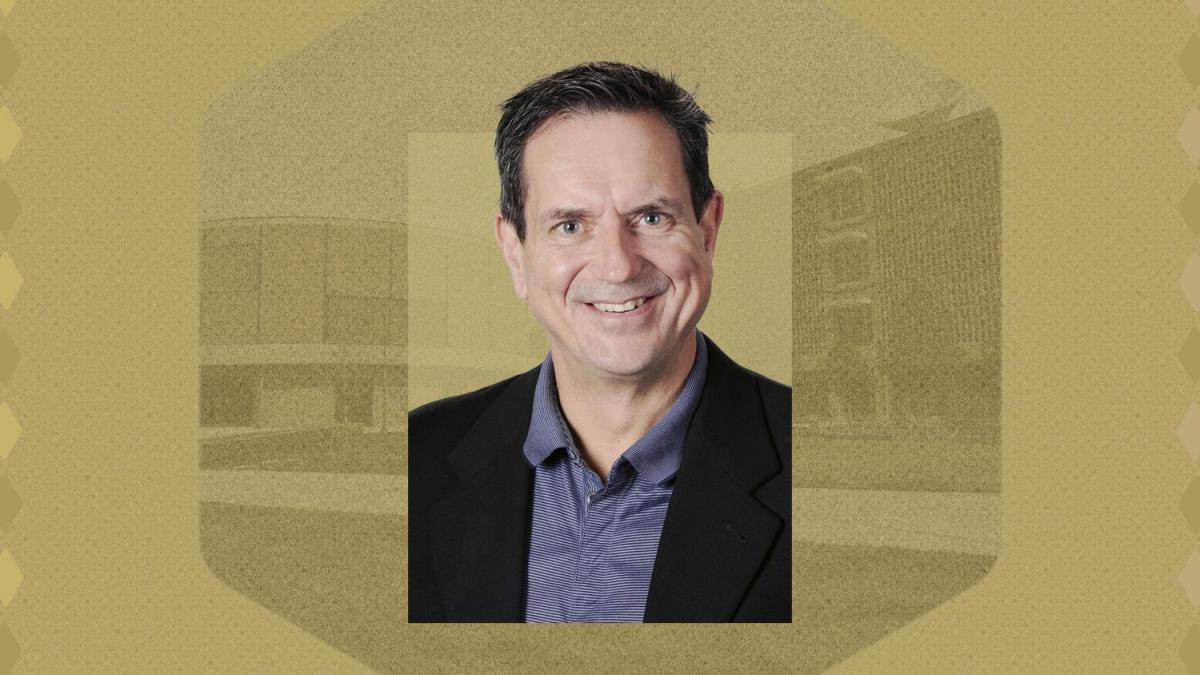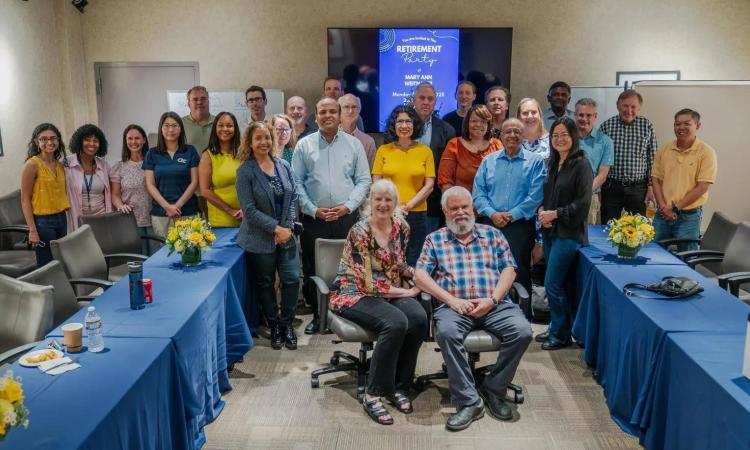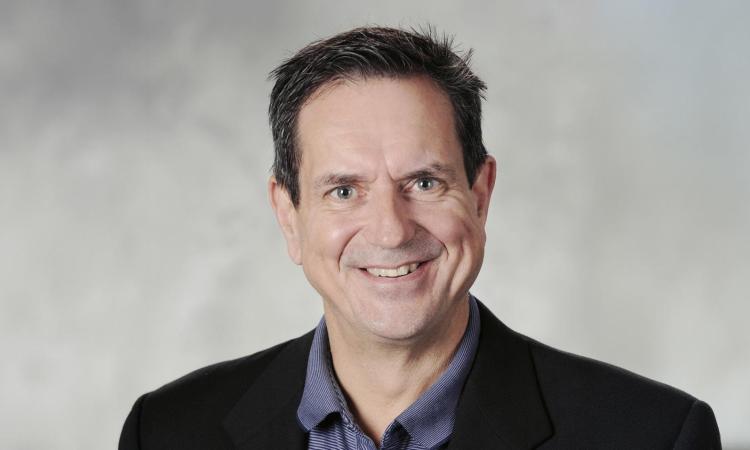
When Professor Gordon Stüber joined the Georgia Tech School of Electrical and Computer Engineering in 1986, wireless phones were the size of bricks and the School had just 48 network ports. Nearly four decades later, he retires as a pioneer in wireless systems, having helped elevate ECE to national prominence and mentored 33 Ph.D. students along the way.
Before stepping away, he shared memories of his early days at ECE, the School’s remarkable growth, and the evolution of wireless technology from analog beginnings to the 5G era.
What is your favorite memory from your time working at ECE?
In the 1980s, ECE faculty, graduate students, and some staff would gather regularly on Friday evenings at Grumpy’s, a long since demolished hole in the wall on the south side of North Avenue near the Tech Tower, for drinks, stories, and laughter.
Otherwise, I cherish the collective memory from all my business travel, flying to interesting destinations around the world, mostly to attend conferences and present papers, but also getting to make new friends and see the world.
What are your proudest academic accomplishments?
I take pride in my many well-cited publications relating to digital and wireless communications, mostly at the physical layer, such as orthogonal frequency-division multiplexing synchronization, cellular radiolocation, radio channel modeling, and others.
I was awarded IEEE Fellow in 1999 for “contributions to mobile radio and spread spectrum communications.” Based on my research and teaching, I wrote the graduate-level textbook Principles of Mobile Communication which has more than 2 million downloads.
The most substantial impact of my research is the Ph.Ds. produced that have gone on to successful careers.
What was your favorite part about working at ECE?
I’ve had the pleasure to work with a wonderful group of colleagues and staff that all got along. ECE has excellent undergraduate students and has always recruited top-notch graduate students during my entire time at Georgia Tech. Working with bright and motivated students has truly been a pleasure.
What is your best teaching memory?
When I taught ECE6604 Personal & Mobile Communications for the first time in Spring quarter of 1993, it was scheduled Monday, Wednesday, and Friday at 8 a.m., yet on the first day of classes I walked into a classroom full of eager students with a thirst to learn.
I spent Sundays, Tuesdays and Thursdays at the office writing notes, sometimes until 3 a.m. for my 8 a.m. lecture, that would later become Principles of Mobile Communication.
Years later, my son Nickolas was born in the wee hours of Jan. 13, 2004, and I called up ECE to cancel my morning ECE6604 class, which would end up being the only class I ever cancelled.
How have you seen ECE change over the years?
When I reported for work in the Fall of 1986, there was no office space available for me. I spent three months sitting in various places, in empty classrooms, in a storage closet for electric machines, in Professor Aubrey Bush’s office, and teaching EE 7052 Spread Spectrum with no phone and no computer.
Georgia Tech in the mid-1980s was primarily an undergraduate teaching institute and the School of Electrical Engineering ranked 22nd nationally. Very few Ph.D. students were produced, zero to four graduated annually, mostly from the Digital Signal Processing (DSP) Technical Interest Group.
The campus had a mainframe computer in the Rich Building that was accessible via a wired network operating at 48 kb/s and EE had just 48 ports to access the campus network.
Only the DSP group had any equipment and even the computer engineering group had no computers. When I was finally assigned a second-floor office in Van Leer, I was relieved to be given a donated AT&T PC6300 and to find that one of the 48 network ports was available.
LaTeX only ran on the DSP’s Digital Equipment Corp Virtual Address eXtension computer on the 4th floor of Van Leer and that’s where the printer was.
Since then, the growth in Georgia Tech and ECE has been remarkable. Today ECE ranks in the top five schools nationally and produces around 100 Ph.Ds. per year.
How has your field of study changed over the years?
My field of study in digital and wireless communications has evolved rapidly. When I joined Georgia Tech in 1986, cellular telephony was first generation analog FM with subscriber phones installed in cars and handheld phones were nicknamed “The Brick.”
My early funded projects with Bell South Enterprises studied options for second generation digital cellular. Evolving at one generation per decade roughly on the decade, cellular operators have been deploying fifth generation cellular since 2020, and researchers are now studying the sixth generation.
(text and background only visible when logged in)
Related Content
Weitnauer Retiring After 48 Years at Georgia Tech
Professor Mary Ann Weitnauer, a leader in wireless communications research and a trailblazer for women in engineering, retires after a remarkable 48-year academic and professional career.
Stüber Selected for IEEE Communications Society RCC Award
ECE Professor Gordon L. Stüber has been named the recipient of the 2017 IEEE Communications Society Radio Communications Committee (RCC) Technical Recognition Award.

